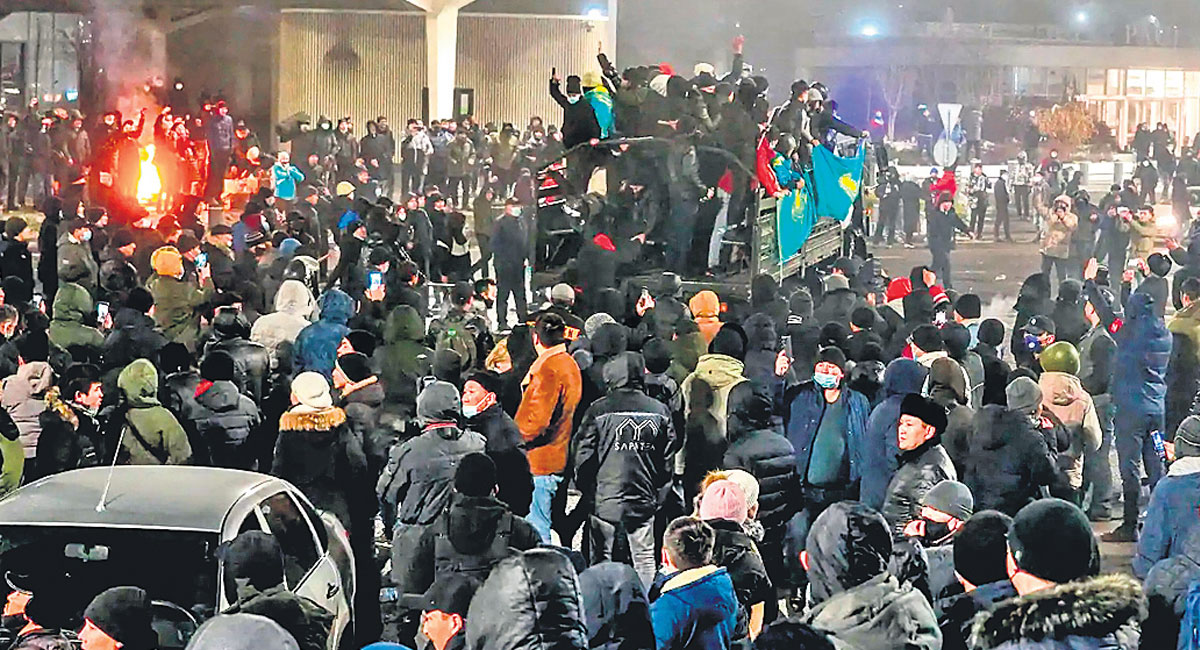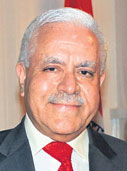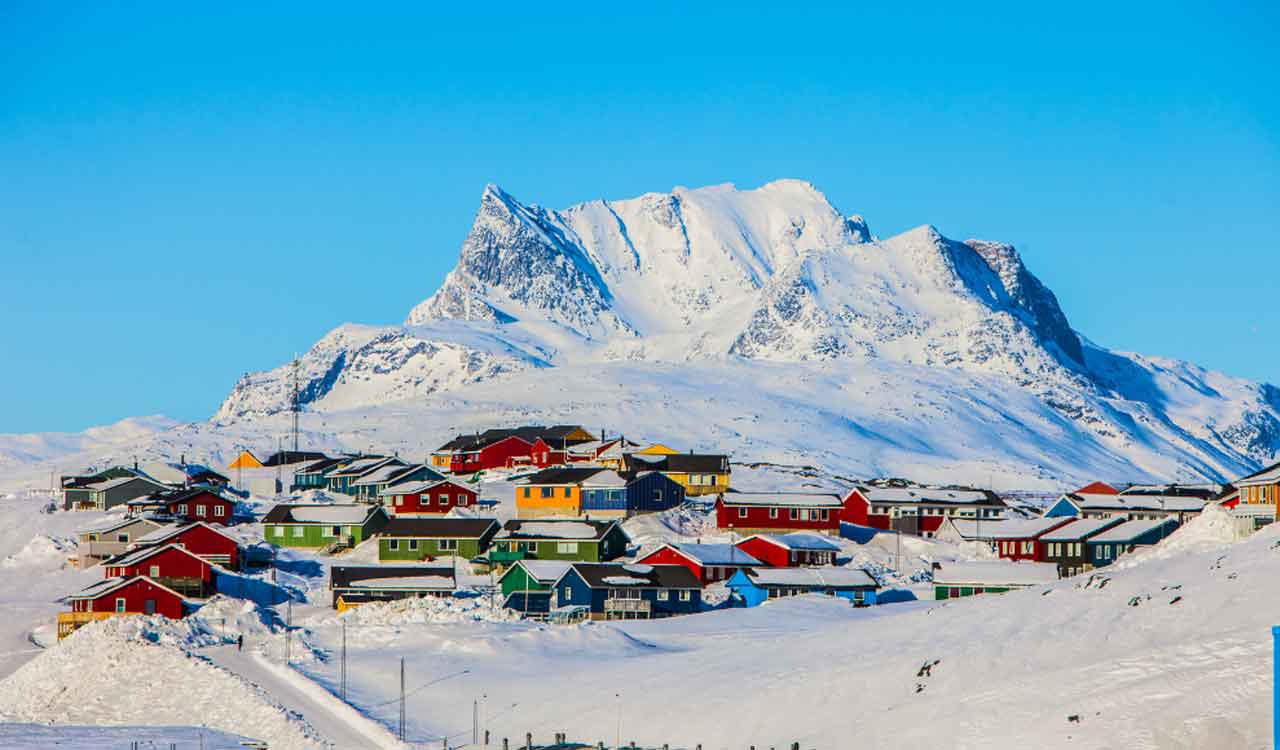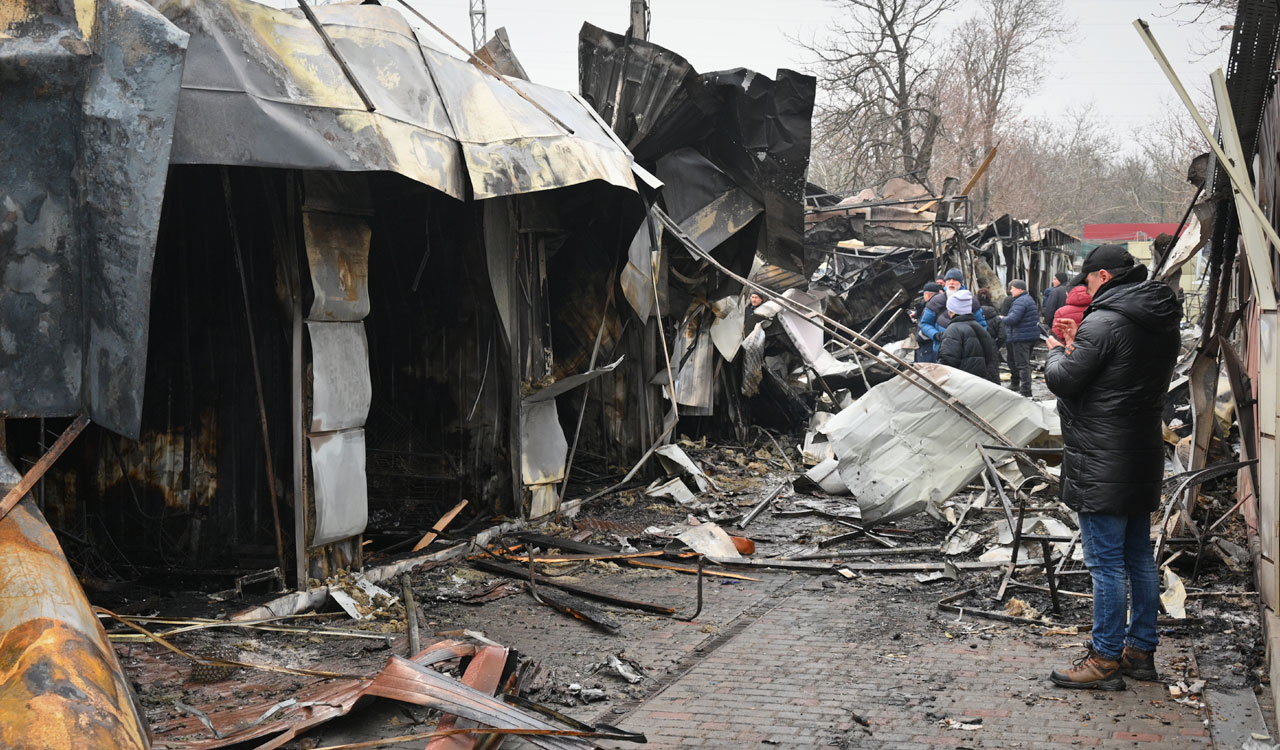Opinion: A shake-up for Central Asia
By Amb Ashok Sajjanhar The last few days have witnessed unprecedented violence, bloodshed and frenzy on the streets of many cities of Kazakhstan, including the capital Nur-Sultan and the largest city and former capital Almaty. As per initial accounts, the peaceful protests against the increase in the price of car fuel were quickly hijacked by […]

By Amb Ashok Sajjanhar
The last few days have witnessed unprecedented violence, bloodshed and frenzy on the streets of many cities of Kazakhstan, including the capital Nur-Sultan and the largest city and former capital Almaty. As per initial accounts, the peaceful protests against the increase in the price of car fuel were quickly hijacked by “criminals and murderers… armed and trained bandits, both local and foreign” resulting in chaos and total breakdown of law and order in the country.
The involvement and presence of such large numbers of “terrorists, sleeper cells and militants” (almost 20,000 attacked Almaty) is bad news for all countries in the region, particularly India. The forcible seizure of power by the Taliban in Afghanistan in August, 2021, and the departure of US and NATO forces soon thereafter, has imbued a sense of triumphalism in Pakistan and anxiety in the neighbouring countries, particularly Central Asia and India, that terrorist forces will feel emboldened to launch strikes in these countries. It is imperative for all countries in the region to cooperate by sharing real-time intelligence on terrorist activities so that action can be taken against them before they are able to perpetrate such heinous carnage.
Kazakhstan is a rich and prosperous country. Notwithstanding its huge ethnic and religious diversity with 135 different nationalities, peace and stability prevail. Since its independence from the Soviet union in 1991, Kazakhstan has emerged as a role model of cohesion, tranquillity and peaceful development.
Not Usual Protests
Initially, it appeared that the agenda of the protest had expanded from just the issue of LPG price increase to include other fundamental grievances and demands like the endemic corruption, lack of economic opportunities, poverty, unemployment, stranglehold of the elites, pervasive inequity and inequality and denial of political freedoms. Soon, however, it became clear that these were not the usual protests as the dissidents went about systematically destroying public property and killing security personnel.
According to reports, Russia’s security establishment, which has been closely monitoring developments in Kazakhstan, appears to have come to the initial conclusion that Pakistan’s Tablighi Jamaat in connivance with Afghanistan-trained radicals have carried out these terror attacks in Kazakhstan. Pakistan’s Tablighi Jamaat, which has been trying to make inroads in Central Asia, is alleged to have played a role in creating a terror-type atmosphere in Kazakhstan.
It was thought that if the protesters were demonstrating for reversal of the decision on LPG and for addressing political demands, they would have been mollified by President Tokayev’s decision to restore the cap on LPG prices for the next 6 months and by dismissing Prime Minister Askar Mamin on 5th January. However, rather than these actions having any salutary effect on the protesters, the violence, bloodshed and destruction continued to grow rapidly.
Nazarbayev’s Control
It was at this juncture that President Tokayev decided to wrest the Chairmanship of the National Security Council (NSC) from his predecessor and first President Nursultan Nazarbayev to personally direct the efforts to bring the situation under control. Although Nazarbayev had voluntarily relinquished his office in March 2019, after having occupied that position for around 30 years, and handed over the reins of Presidency to Tokayev, he kept significant control with himself by continuing as the President of the ruling Nur Otan Party and retaining the Chairmanship of the powerful NSC.
It appears from the slogan shouting on the streets of Almaty and other cities that much of the wrath of the rioters was directed against the first President Nazarbayev and not so much against Tokayev who has served as President for less than three years. There were chants of ‘Shal ket!’ (Old Man, Go!). A huge statue of Nazarbayev in Taldy Korgan, the capital of Almaty province, was unceremoniously pulled down.
Tokayev spoke to Russian President, Vladimir Putin for dispatching forces from the Russia-led Collective Security Treaty Organization (CSTO) as “peace-keepers” for a limited period to secure the main strategic installations and important government buildings so that Kazakh security could deal with the “terrorist elements”. This request was immediately acceded to.
Russia Under Cloud
Some doubts have been raised whether such deployment is covered by the mandate of the CSTO. Thus far it has been asserted that CSTO forces will be deputed only when there is a threat from foreign forces. In the present case, however, it has been mentioned that fighting Islamic terrorism is also covered by the provisions of the CSTO.
This is the first time that CSTO forces have been deployed in any country. In the past, requests by Kyrgyzstan in 2010 and more recently by Armenia in 2020 during the Nagorno-Karabakh conflict with Azerbaijan for troops were turned down. The troops are being deployed not to counter the protesters but to protect the state and strategic facilities in Kazakhstan like waterworks, power plants, government buildings, and maintain law and order so that people feel safe.
The quick decision appears to be an assertion by President Putin that Russia is the prime security provider in the former Soviet space and will not hesitate in taking tough decisions to protect its interests and security in its periphery. Kazakhstan is an important, strategic partner of Russia. It will also make Kazakhstan beholden to Russia for a long time and ensure that China, notwithstanding its expanding economic and security footprint in the region in general, and in Kazakhstan in particular, will not be able to wean it off from Russia’s influence.
This horrific incident has an important message for other countries of Central Asia as well as India. They need to significantly expand their vigilance against such radical and fundamentalist terrorist elements. They need to carefully monitor all platforms on social media to ensure that they are not used to disseminate terrorist material, literature or ideology. They also need to actively collaborate with each other for sharing intelligence on a real-time basis. Only then will it be possible to bring peace, stability and prosperity in the region. India can play an important role in this endeavour.

(The author is former Ambassador of India to Kazakhstan, Sweden and Latvia. He is an Executive Council Member at Manohar Parrikar Institute for Defence Studies and Analyses and President, Institute of Global Studies. indianarrative.com)
Now you can get handpicked stories from Telangana Today on Telegram everyday. Click the link to subscribe.
Click to follow Telangana Today Facebook page and Twitter .
Related News
-
After top court blow, Trump seeks 15% global import tariff
2 hours ago -
One year on, no closure for SLBC victims’ families
3 hours ago -
India face South Africa in crucial T20 World Cup Super Eight clash
3 hours ago -
Rain forces washout in New Zealand-Pakistan T20 World Cup match
3 hours ago -
Hyderabad’s Nehru Zoological Park welcomes real-life ‘Rafikis’
4 hours ago -
India clinch first Women’s T20I series victory in Australia since 2016
4 hours ago -
Sowmya selected for Indian women’s football team for AFC Cup 2026
4 hours ago -
Lohitha Sai wins girls’ recurve gold at CM Cup archery
4 hours ago



